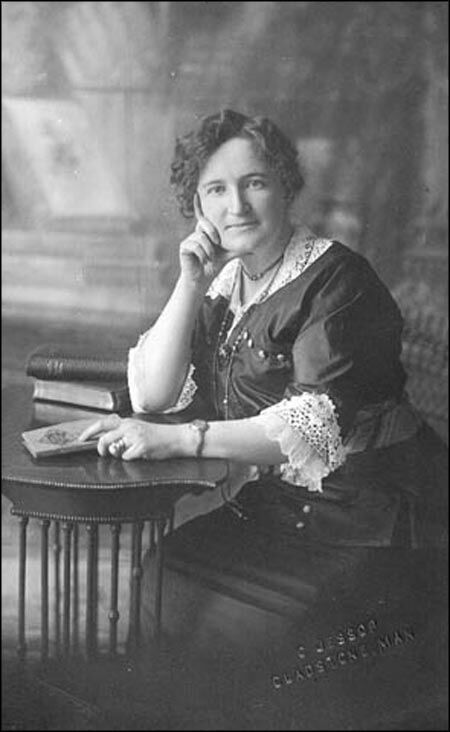Feminism is a movement that promotes women’s rights and interests and seeks to tackle gender-based injustices and inequalities.
Many associations were created at the dawn of the 20th century. They called for social change in response to social inequalities created by capitalism and industrialization. Many of these groups were made up of women, including the Montreal Local Council of Women. One of the goals they worked towards was improving the status of women and over time, they began to make political demands. Women demanded different rights, including:
-
the right to vote
-
the right to participate in elections
-
access to university education
Nellie McClung famously advocated for women to have the right to vote and was elected MLA (member of the Legislative Assembly) in Edmonton, Alberta, in 1921. She was one of the “Famous Five,” alongside Emily Murphy, Irene Marryat Parlby, Louise Crummy McKinney and Henrietta Muir Edwards, who sent a petition to the Supreme Court of Canada in 1927, asking whether the term “qualified person” included women. Canada’s Constitution Act of 1867 stated that a “qualified person” could become a senator, but no woman had held that seat as of 1927. This would come to be known as the “Persons Case”.

The women demanding the right to vote were called suffragettes, stemming from the term “suffrage,” which means a vote or an opinion expressed during an election.
In the 20th century, feminists’ demands multiplied. Women got the right to vote federally in 1918 and in Quebec in 1940. Women’s demands included:
-
gender equality (socially, legally and politically)
-
equal pay
-
access to abortion services
-
access to daycare
Anne Claire Poirier’s 1975 film Le temps de l’avant tackles the issue of abortion, a very controversial topic at the time.
The 1970s saw the creation of many government organizations which stood for women’s rights and gender equality. These included the Council on the Status of Women in 1973 and the Canadian Research Institute for the Advancement of Women in 1976.
Published between 1980 and 1987, the magazine La vie en rose looked at political, cultural and social events through a feminist lens.